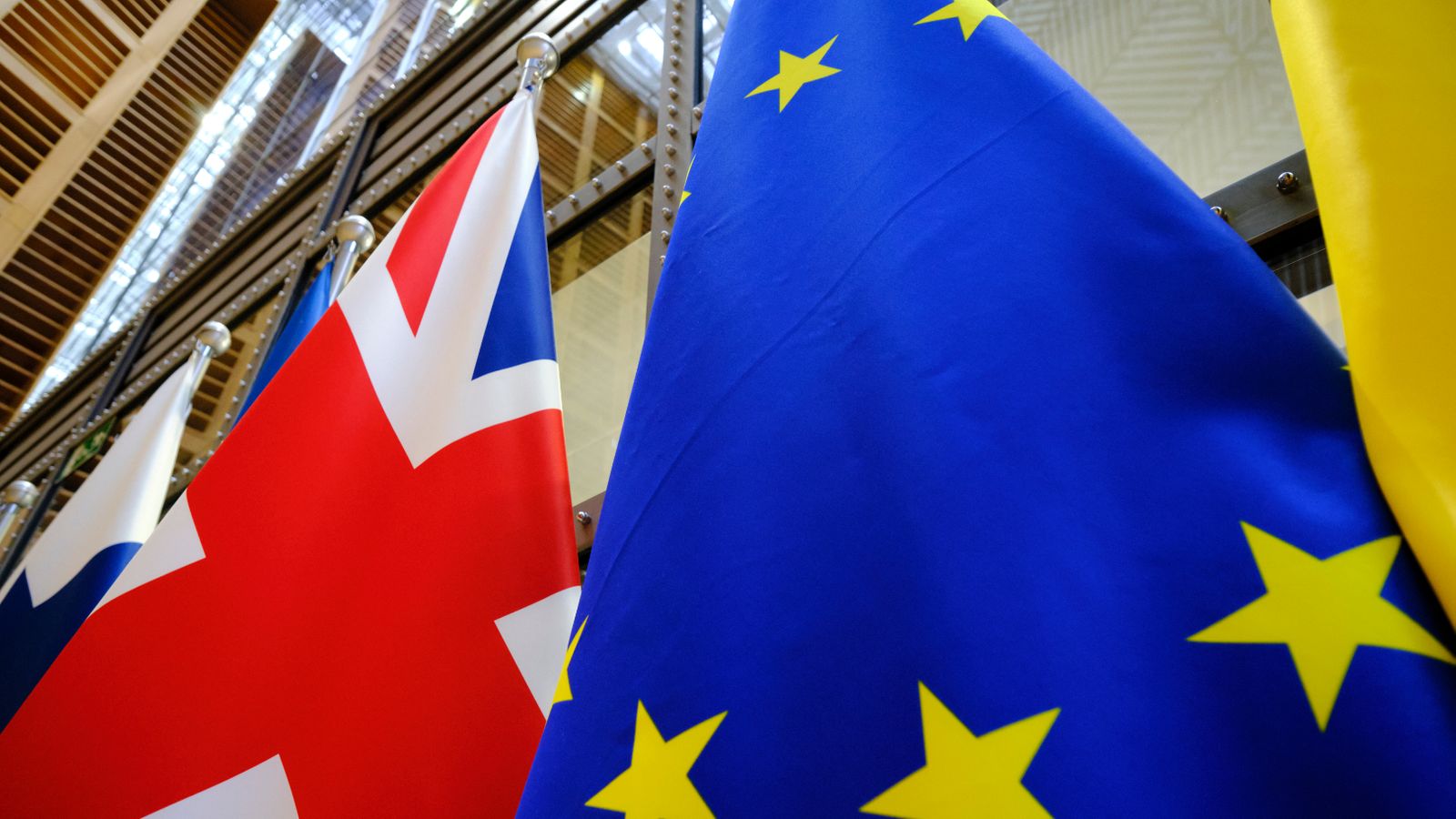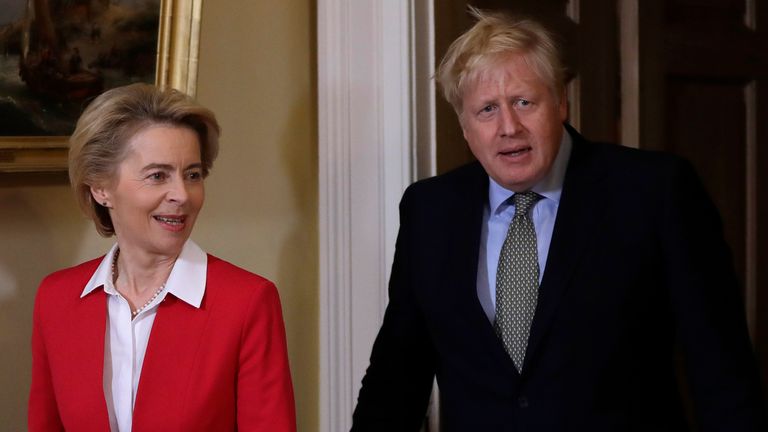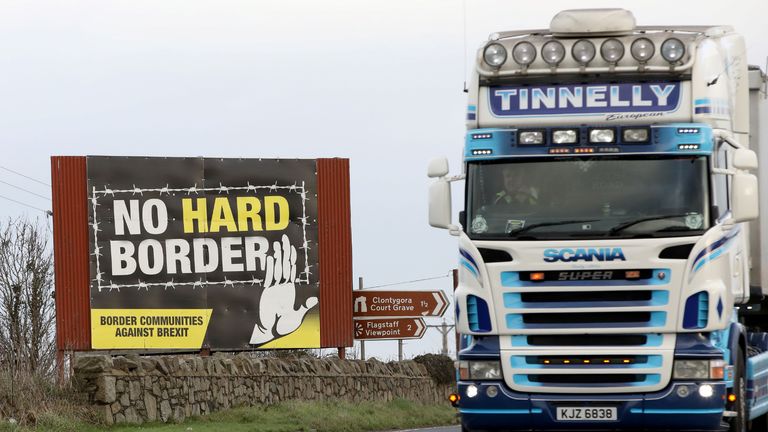There is now a “smoother glidepath” towards a post-Brexit trade deal with the EU after the government ditched plans that could have seen the UK breach international law, Michael Gove has told Sky News.
Prime Minister Boris Johnson is heading to Brussels this afternoon in a last-ditch bid to make a breakthrough in trade negotiations with the EU, before the end of the Brexit transition period on 31 December.
Cabinet Office minister Mr Gove suggested the prime minister’s task could be made easier following Tuesday’s announcement of an agreement on the implementation of the UK’s divorce deal with the EU, including on post-Brexit arrangements for the Irish border.
As a result of that agreement, the government said it would now scrap highly-controversial parts of its Internal Market Bill, which would have given ministers the power to override the Withdrawal Agreement.
Mr Gove told Sky News’ Niall Paterson: “Throughout this year there have been intense talks between ourselves and the European Commission in order to make sure we can resolve the issues on what’s called the Northern Ireland Protocol.
“Of course people wanted to make sure there’s no border infrastructure at the Northern Ireland-Ireland border, but also that Northern Ireland can be a secure part of the UK.
“We’ve agreed that and, as a result, some of the measures we were putting forward – which some in Europe had criticised – we no longer need to introduce those.
“That means there is a smoother glidepath to a possible deal.”
Mr Gove suggested that, without an agreement on post-Brexit arrangements for the Irish border, known as the Northern Ireland Protocol, then goods travelling to Northern Ireland would have been subject to tariffs.
“The price of everything from a pint of milk to a Nissan Qashqai would have been greater for citizens in Northern Ireland,” he said.
“It’s also the case that we might have faced restrictions on some of the food that would have been found on supermarket shelves.
“It would also have been the case that there might have been barriers that people would have tried to erect between Northern Ireland businesses and Great Britain.
“None of those threats now exist.”
Mr Gove added the UK government could now offer greater guarantees to people in Northern Ireland that they are “secure in the UK” and the peace process had been protected.
But he denied the introduction of new checks on goods travelling between Northern Ireland and Great Britain meant a border had been established in the Irish Sea – something Mr Johnson has previously pledged he would firmly avoid.
“I don’t think there’s a border in the Irish Sea,” Mr Gove said.
“It’s always been a case that the whole island of Ireland has been regarded as a single zone when it comes to animal health.
“And it’s always been the case that there’s been checks on live animals when they’ve gone from Great Britain to Northern Ireland.
“There are a minimal additional number of checks on products of animal origin.”
He added: “Northern Ireland’s position is different from the rest of the UK in one particular way, which is that it has a land border with the European Union.
“As a result of that, there are certain specific additional measures we need to put in place.”
Mr Gove also said the presence of EU officials in Northern Ireland would be a common feature of the UK’s new trading relationship with the bloc, from 1 January.
“It’s always the case when you have trade arrangements that people from another country with whom you’ve got a trading relationship can come, can inspect and can make sure that your facilities meet their standard and vice versa,” he said.
Mr Gove, who is co-chair of the EU-UK Joint Committee, is later on Wednesday set to update the House of Commons on the details of the government’s agreement on the implementation of the Withdrawal Agreement and Northern Ireland Protocol.



